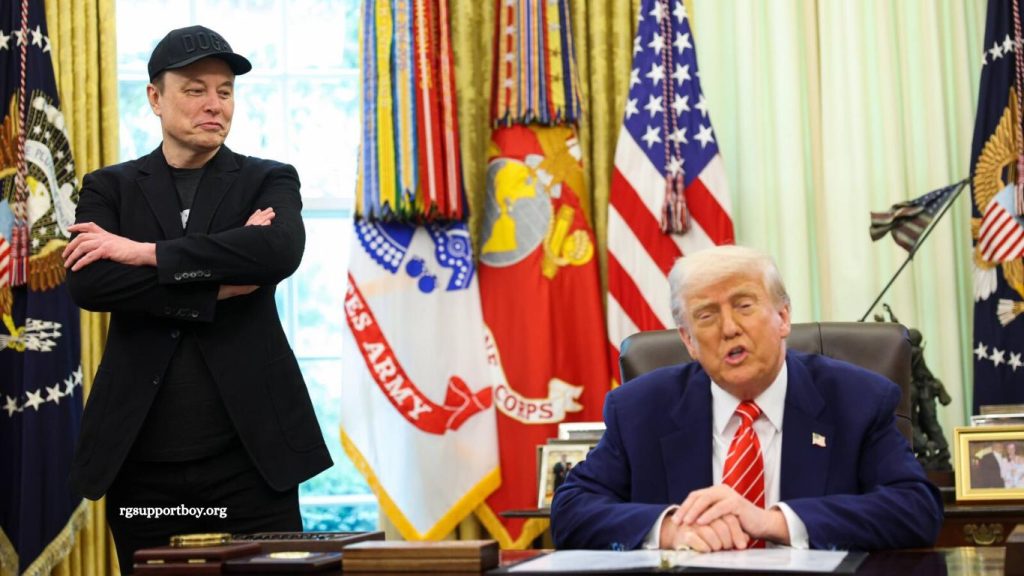federal judge has halted the Federal Trade Commission’s (FTC) investigation into media watchdog nonprofit Media Matters, ruling that the agency’s actions amounted to unconstitutional retaliation.
Judge Sparkle L. Sooknanan of the U.S. District Court for the District of Columbia said the case “presents a straightforward First Amendment violation” and warned that such government conduct “should alarm all Americans when the Government retaliates against individuals or organizations for engaging in constitutionally protected public debate.”
Read More: Judge Calls FTC Probe of Nonprofit That Criticized X ‘Retaliatory’
FTC Investigation Tied to Musk’s Dispute With Media Matters
The FTC launched its probe in May, demanding extensive records from Media Matters, including its budgets and communications with other nonprofits. Regulators sought to determine whether the group colluded illegally with advertisers.
The inquiry followed a November 2023 Media Matters report claiming ads from major brands were being displayed alongside antisemitic and offensive content on X, Elon Musk’s rebranded Twitter platform. That report contributed to a wave of advertiser departures from the social network, which was already under scrutiny for Musk’s rollback of moderation policies and paid verification system.
Musk and X argued that nonprofits and advertisers were to blame for the ad exodus, not the platform’s policy shifts. In response, X sued Media Matters and also filed suit against an ad industry coalition representing more than 150 brands.
Judge Points to Political Motivation
In her ruling, Judge Sooknanan said the FTC’s sweeping civil investigative demand (CID) appeared to be politically driven. She highlighted past statements by FTC Chairman Andrew Ferguson, who, before his appointment, had called on conservatives to investigate groups combating “disinformation.”
The judge also noted that Ferguson hired senior staffers who had publicly criticized Media Matters, and pointed to earlier, similar investigations launched by Republican attorneys general in Missouri and Texas—efforts she had already enjoined as likely retaliatory.
“Media Matters engaged in quintessential First Amendment activity when it published an online article criticizing Mr. Musk and X,” the judge wrote. “The Court finds that the FTC’s expansive CID is a retaliatory act.”
Broader Implications for Free Speech
Media Matters president Angelo Carusone welcomed the ruling, saying it underscores the need for nonprofits and journalists to resist political intimidation.
“This case is not just about the campaign to punish and silence Media Matters,” Carusone said. “It is a critical test for whether the courts will allow any administration—from any political party—to bully media and nonprofit organizations through illegal abuses of power.”
Musk has also pursued legal action against the Center for Countering Digital Hate (CCDH), another nonprofit critical of X’s handling of harmful content, though that case was dismissed earlier this year.
Frequently Asked Questions (FAQs)
What was the FTC investigating Media Matters for?
The FTC launched a probe in May 2025 to determine whether Media Matters had illegally colluded with advertisers. The agency demanded access to the nonprofit’s budgets, communications with other organizations, and related records.
Why did the judge block the FTC investigation?
Judge Sparkle L. Sooknanan ruled that the investigation was a retaliatory act against Media Matters for publishing critical research about Elon Musk’s X. She said the FTC’s actions violated the First Amendment’s protection of free speech and press.
How is Elon Musk involved in this case?
The conflict stems from Media Matters’ 2023 report showing ads from major brands appearing next to antisemitic and offensive posts on X. The report triggered an advertiser boycott, leading Musk and X to sue Media Matters and other advocacy groups, claiming they drove away advertisers.
What role did politics play in the ruling?
The judge cited evidence that FTC Chairman Andrew Ferguson and other officials had prior political motives against Media Matters and similar organizations. She also noted that Republican attorneys general in Missouri and Texas had previously issued similar demands against the nonprofit, which courts blocked.
What does this ruling mean for nonprofits and media organizations?
The decision reinforces protections for watchdog groups, media outlets, and nonprofits that publish critical research. It signals that courts may push back against government attempts to intimidate organizations through investigations that appear politically motivated.
Has Elon Musk filed other lawsuits against watchdog groups?
Yes. Musk and X also sued the Center for Countering Digital Hate (CCDH) for criticizing the platform’s moderation policies. That case was dismissed in March 2025.
Conclusion
Judge Sooknanan’s ruling marks a significant victory for Media Matters and a broader affirmation of First Amendment protections. By labeling the FTC’s investigation as retaliatory, the court has drawn a clear boundary against government overreach into watchdog journalism and nonprofit advocacy. The case also underscores the deepening clash between Elon Musk’s X and organizations that monitor online platforms for harmful content.

